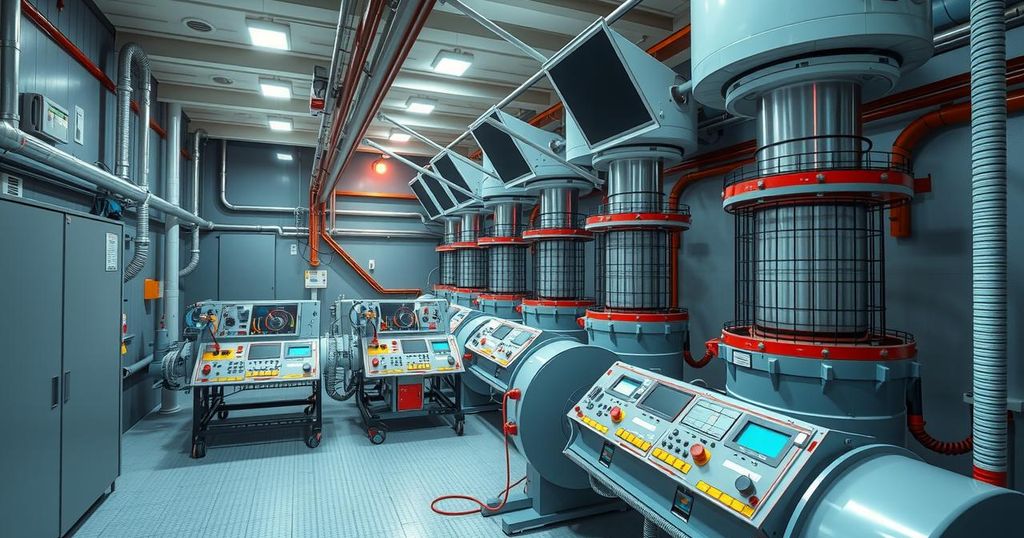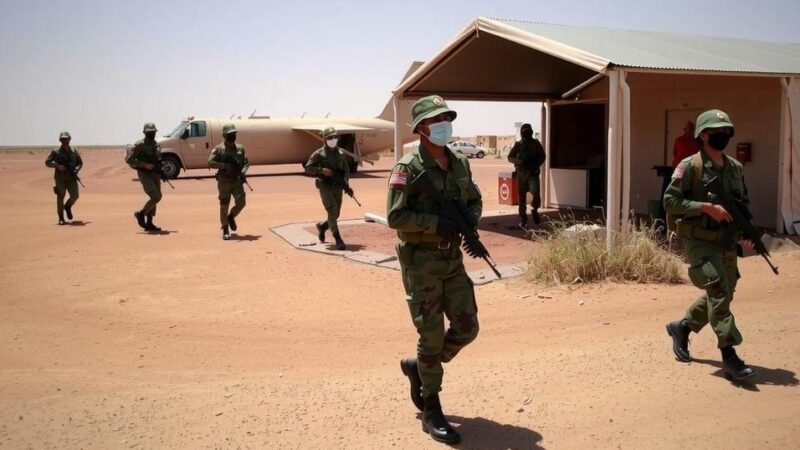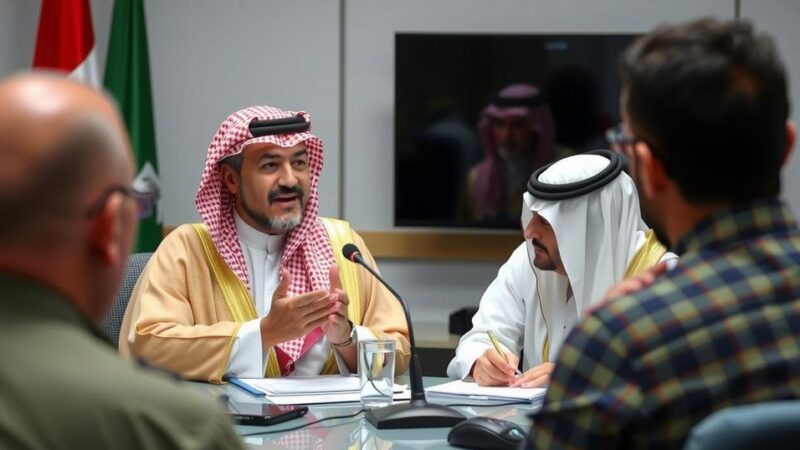Rafael Grossi, head of the IAEA, has raised alarms about Iran’s uranium enrichment, noting an increase to 60%. He indicated this may reflect Iran’s responses to regional set-backs and potential political motivations for nuclear armament. Grossi urged caution regarding military actions against Iran’s nuclear sites, emphasizing the need for immediate safeguards and highlighting the global trends towards nuclear armament concerns, complicating the non-proliferation landscape.
The Director General of the International Atomic Energy Agency (IAEA), Rafael Grossi, has expressed grave concerns regarding Iran’s recent escalation in uranium enrichment activities. During an interview with the BBC, Mr. Grossi indicated that Iran has significantly increased its stockpile of uranium enriched to 60%, which is perilously close to the threshold required for developing a nuclear weapon. He highlighted that this increase may be interpreted as Iran’s reaction to recent military and diplomatic setbacks across the region in Syria, Lebanon, and Gaza. While acknowledging that certain Iranian politicians advocate for the pursuit of nuclear weapon capabilities, Grossi noted that the current Iranian leadership does not appear to be taking that path.
In his address at the Manama Dialogue conference in Bahrain, Mr. Grossi cautioned Israel against any military strikes on Iranian nuclear facilities, emphasizing that such actions would have severe consequences, including potential retaliation from Tehran and the risk of radiation exposure. Additionally, he expressed concern about the normalization of discussions surrounding nuclear weapons in various countries amid a backdrop of increasing interest in acquiring such capabilities. According to IAEA reports, inspectors found that Iran is actively feeding more partially enriched uranium into centrifuges at its Fordow facility, escalating production levels from 4.7 kg to an anticipated 34 kg of 60% enriched uranium monthly. This situation demands immediate attention, as Grossi stressed the necessity for enhanced safeguards at the Fordow site to ensure compliance and prevent misuse of nuclear materials.
Despite Iran’s denials regarding the existence of a military nuclear program, Mr. Grossi noted the significant growth and diversification of Iran’s nuclear activities over the last decade. He reiterated, “The Iran of 2015 has nothing to do with Iran of 2025,” highlighting the dramatic increase in uranium production rates. The IAEA’s continuing discussions with Iranian authorities revealed conflicting positions, as some groups within Iran advocate for independence in nuclear policy despite reassurances that production would be limited to civilian purposes. Grossi conveyed the global implications of this development, insisting that the existing nuclear non-proliferation framework is under significant strain, resulting in more nations contemplating the acquisition of nuclear arsenals for security guarantees.
The context of this discussion revolves around Iran’s escalating nuclear activities that continue to raise alarms internationally, particularly concerning potential military implications. The IAEA plays a crucial role in monitoring and investigating nuclear programs globally, ensuring compliance with nuclear agreements and promoting nuclear non-proliferation measures. The tensions regarding Iran’s nuclear intentions, coupled with regional conflicts and geopolitical dynamics, have heightened concerns over nuclear security and stability in the Middle East. Mr. Grossi’s remarks underscore the intricate balance of diplomatic negotiations, regional power struggles, and the global commitment to preventing nuclear weapon proliferation.
In summary, the international community remains apprehensive about Iran’s advancing uranium enrichment efforts, as articulated by IAEA Director General Rafael Grossi. While Iran asserts the peaceful nature of its nuclear program, the significant increase in production levels closely approaching weapon-grade capabilities complicates diplomatic efforts and regional security dynamics. Grossi’s warnings regarding the potential consequences of military interventions and the need for enhanced safeguards at nuclear facilities serve as critical reminders of the urgent necessity for cooperative international dialogue and compliance with non-proliferation norms to ensure long-term stability.
Original Source: www.bbc.com







